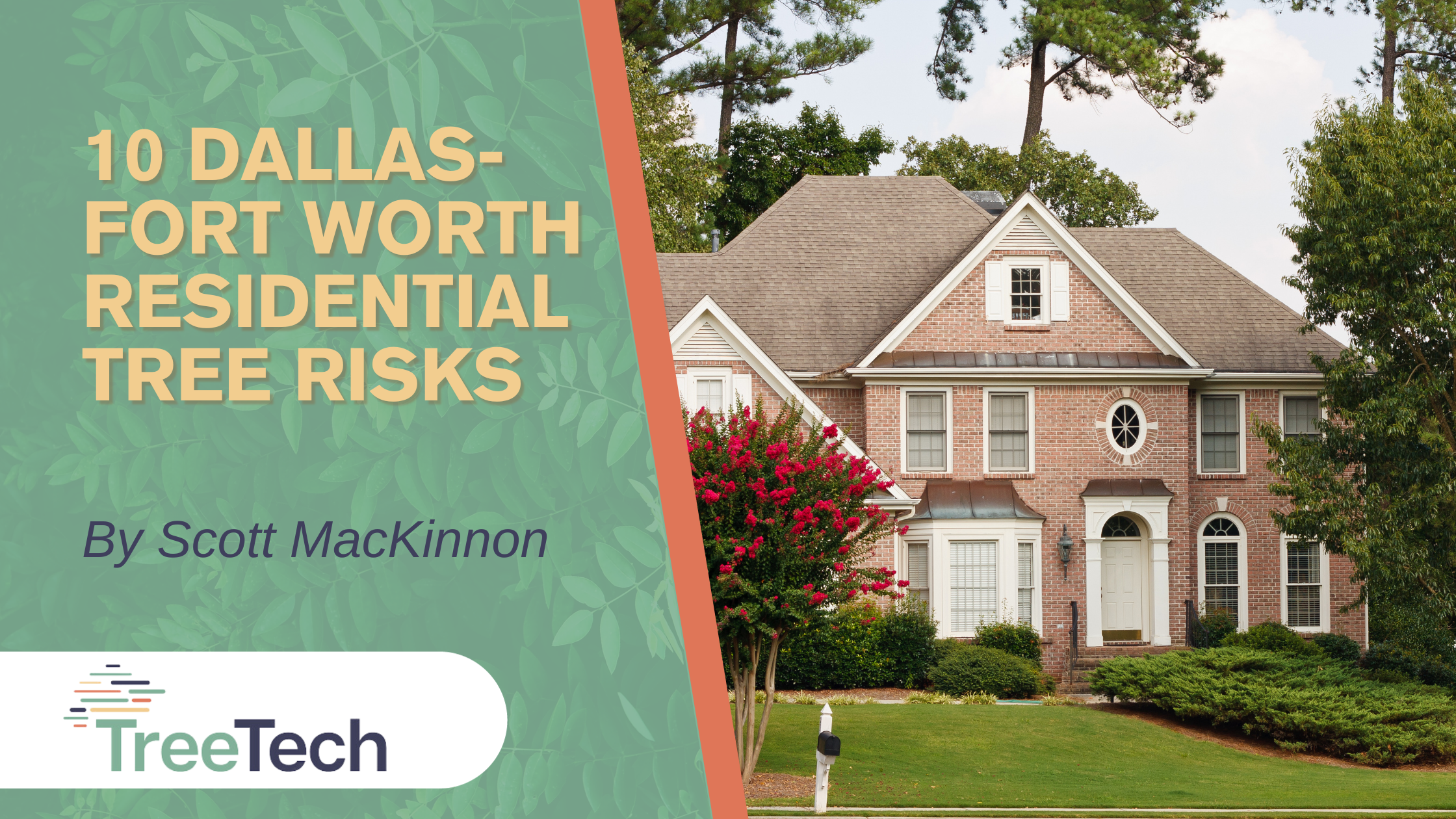The Dallas-Fort Worth Metroplex boasts a diverse urban landscape dotted with residential trees that contribute to the region’s environmental health and aesthetic appeal. However, trees on private property face a unique set of challenges that can impact their growth, longevity, and overall well-being. This even goes for the trees in the front yards of our homes.
You’d be surprised by the risks that trees face even on privately owned property. All of these are risks that can easily be avoided by property owners though. Here are the top 10 risks that trees on private property encounter in the Dallas-Fort Worth Metroplex and explore strategies to mitigate these challenges.
Improper Pruning Practices
One of the foremost risks to trees on private property is the application of improper pruning practices. Well-meaning property owners or untrained tree service providers may engage in over-pruning, topping, or using incorrect pruning techniques. Improper pruning weakens trees, making them more susceptible to diseases, pests, and structural failure. To mitigate this risk, property owners should educate themselves on proper pruning methods or hire certified arborists to ensure the health and longevity of their trees.
Construction-Related Stress
The expansion and development of private properties in the Dallas-Fort Worth Metroplex often subject trees to construction-related stress. Excavation, trenching, and changes in grading can compromise a tree’s root system, leading to soil compaction and reduced nutrient absorption. To address this risk, property owners should implement protective measures during construction, such as installing barriers around trees, avoiding root disturbance, and consulting with arborists to develop construction plans that minimize impact.
Soil Compaction and Urbanization
Urbanization not only brings construction-related stress but also contributes to soil compaction, a significant risk for trees on private property. The increase in impervious surfaces like pavement and buildings reduces the soil’s ability to absorb water and nutrients, negatively impacting tree root systems. Property owners can counteract this risk by incorporating permeable surfaces, utilizing mulch around residential trees, and regularly aerating the soil to enhance its structure.
Invasive Species and Pests
Invasive species and pests pose a continual threat to trees on private property in the Dallas-Fort Worth Metroplex. Property owners should be vigilant against infestations such as the emerald ash borer, oak wilt, and other destructive pests. Regular inspections by arborists, prompt removal of infected residential trees, and the application of integrated pest management strategies can help mitigate the impact of invasive species on private property trees.
Lack of Water Management
The often unpredictable weather patterns in the Dallas-Fort Worth area, including periods of drought, make water management a critical factor in maintaining healthy trees on private property. Inadequate watering or overwatering can stress even residential trees, making them more susceptible to diseases and pests. Property owners should implement efficient watering practices, considering the specific needs of different tree species, soil types, and weather conditions. You can learn more about city watering limits and restrictions at “Save Dallas Water.“
Poor Selection of Tree Species
Choosing the right tree species that thrive in the Dallas-Fort Worth Metroplex is crucial for long-term success. Inappropriate species selection can result in poor growth, increased susceptibility to diseases, and premature death. Property owners should consider factors such as soil type, climate conditions, and available space before planting trees. Consulting with local TreeTech arborists can provide valuable guidance on selecting tree species that are well-suited to the Dallas-Fort Worth Metroplex. That way you can ensure the residential trees on your will thrive long-term.
Lack of Mulching Practices
Mulching is a simple yet effective practice that is often overlooked on private properties. Mulch helps regulate soil temperature, retain moisture, and suppress weed growth, promoting overall tree health. However, improper mulching, such as piling mulch against the tree trunk (known as “volcano mulching”), can lead to decay and pest issues. Property owners should be educated on proper mulching techniques and incorporate them into their tree care routine.
Overuse of Fertilizers and Chemicals
While fertilizers can be beneficial for tree growth, their overuse or improper application can lead to adverse effects. Excessive fertilization can cause nutrient imbalances, root burn, and environmental pollution. Property owners should follow recommended fertilization guidelines, conduct soil tests to determine nutrient needs, and refrain from applying chemicals near the tree’s root zone without professional advice.
Neglect of the Regular Residential Trees Inspection
Regular tree inspections by trained arborists are essential for identifying potential issues before they become serious threats. Neglecting these inspections can result in unnoticed diseases, pests, or structural weaknesses that may lead to irreversible damage. Property owners should prioritize routine inspections to catch problems early and implement proactive measures to preserve the health of their residential trees.
Absence of Community Engagement
The lack of community engagement and awareness regarding the importance of tree care is a collective risk that impacts private property trees in the Dallas-Fort Worth Metroplex. Building a sense of community responsibility for urban forestry can foster a culture of tree care and preservation. Property owners can contribute by organizing neighborhood tree planting events, sharing information on proper tree care practices, and participating in local initiatives that aim to enhance the urban tree canopy.
Residential trees play a vital role in enhancing the overall environmental quality of the Dallas-Fort Worth Metroplex. Recognizing and addressing the risks outlined above requires a combination of individual responsibility, education, and community engagement. By adopting proper care practices for residential trees, seeking professional guidance when needed, and actively participating in local initiatives, property owners can contribute to the resilience and longevity of the urban tree canopy in the Dallas-Fort Worth Metroplex.
All of the tree risks that are listed above are preventable with proactive actions by North Texas property owners. Knowing how your residential trees are doing and keeping up with their long-term care is vital to the health of your property. Contact us to schedule a consultation with TreeTech’s Tree Care Professionals!

Recent Comments